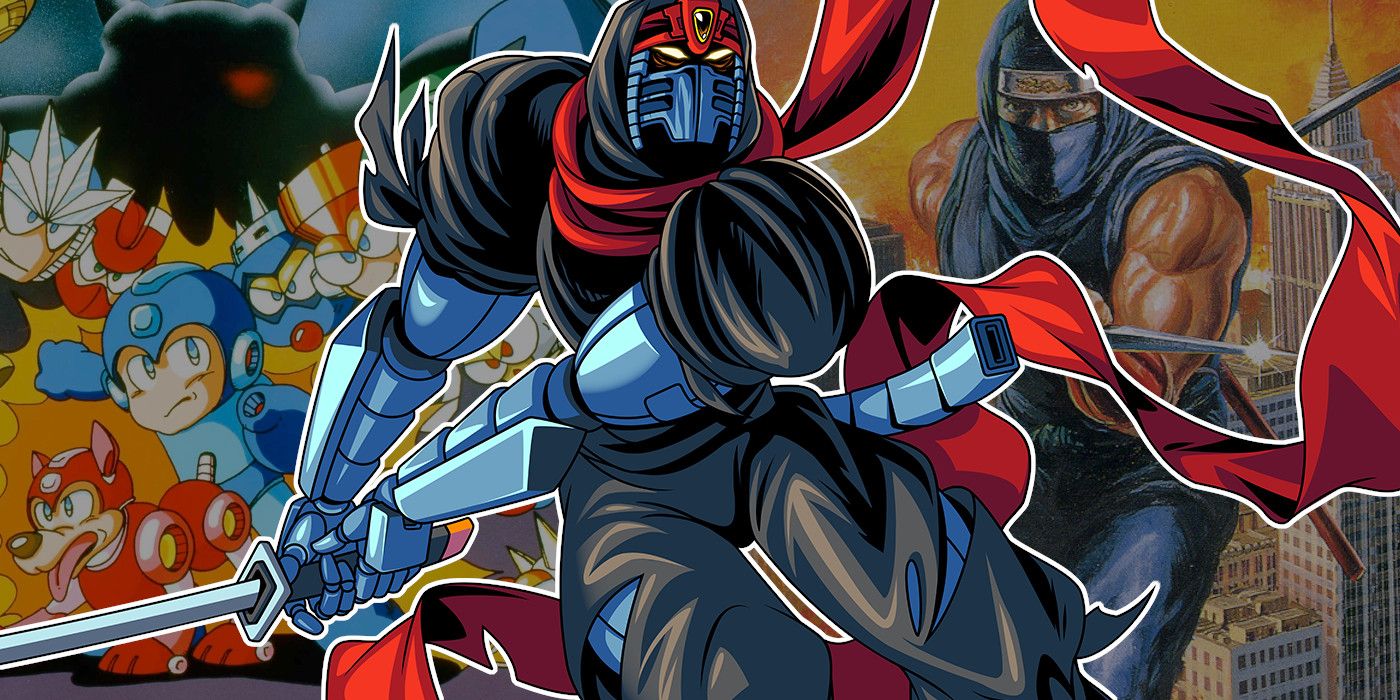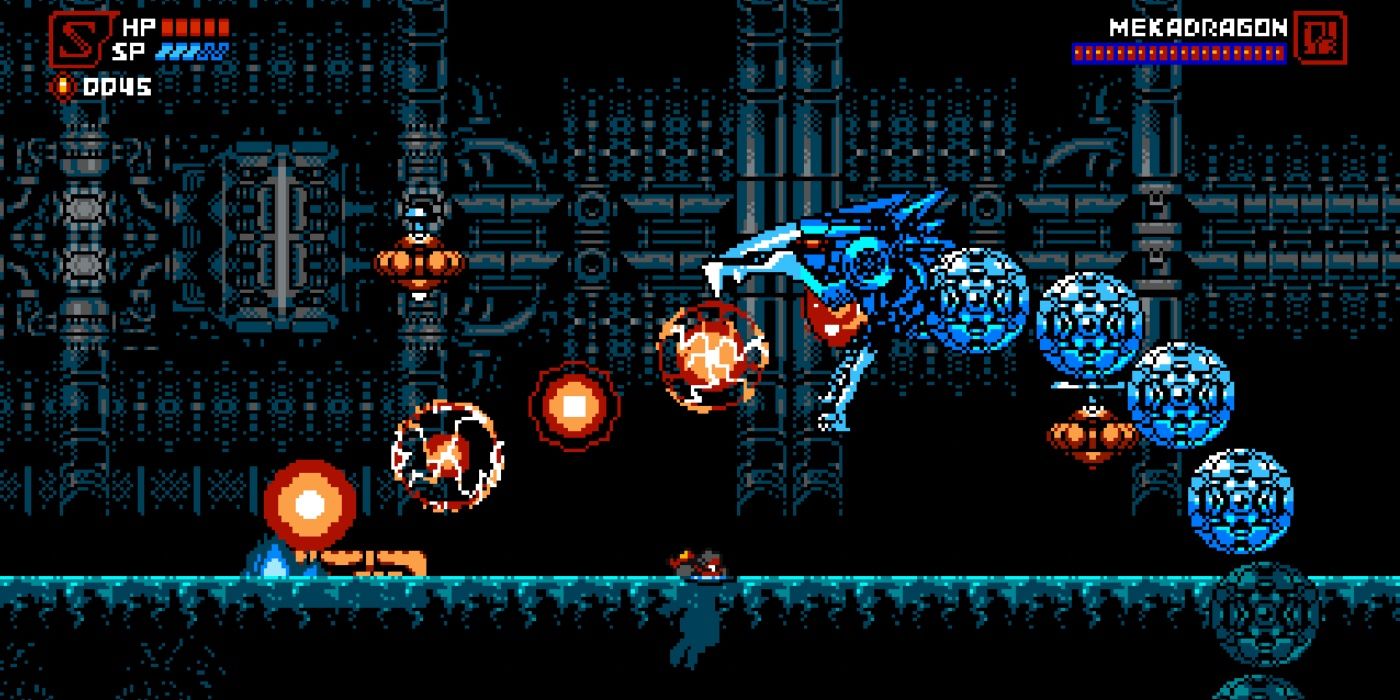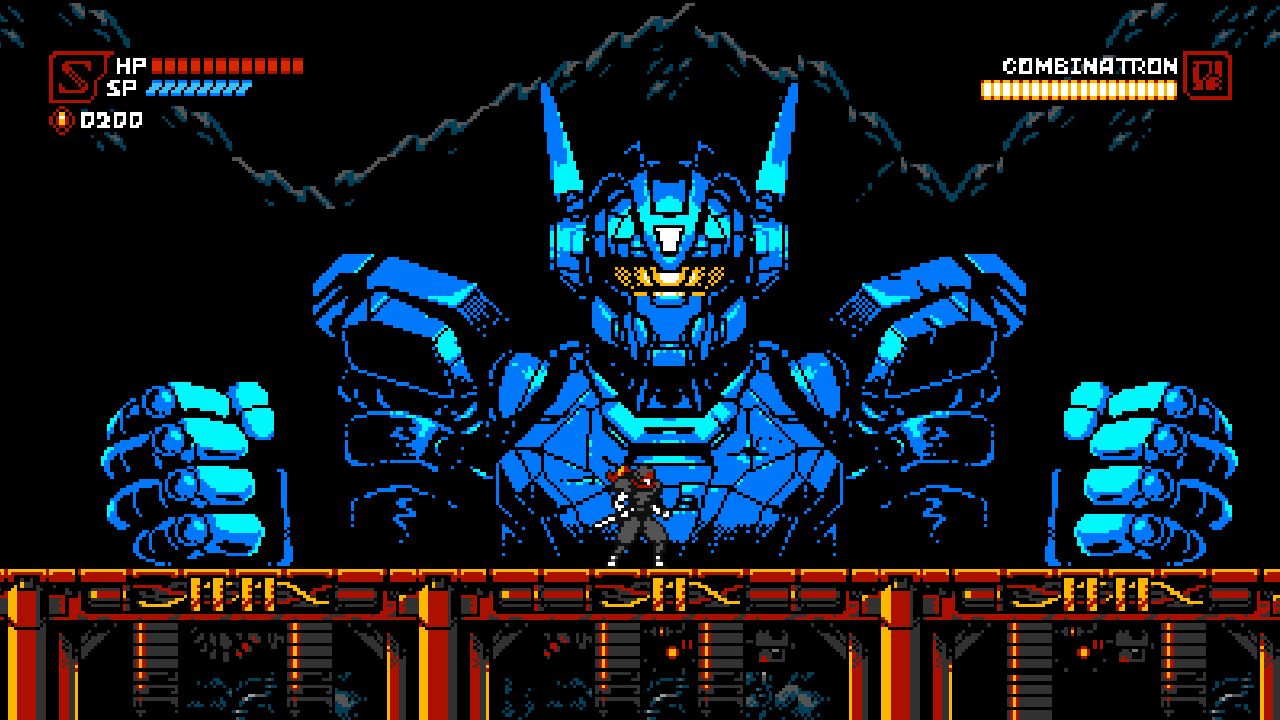
The gaming industry is creatively volatile. Studios are constantly innovating and executing on ideas that shift the landscape of the medium. Take, for instance, the shooter genre, where games like DOOM, Goldeneye 007, Halo: Combat Evolved, Call of Duty 4: Modern Warfare, Destiny and Fortnite dominated over one another, ratcheting up the competition by introducing new concepts that captivated, shifting the marketplace and making their predecessors look archaic in comparison.
The entire industry moves and evolves, but for as much as the landscape changes, some design philosophies don't become tired; they become timeless. Mechanical Head Studios and Yacht Club Games' Cyber Shadow is testament to this.

At its core, Cyber Shadow is a 2D action-platformer, but on the surface it's a retro, Ninja Gaiden-inspired throwback. However, viewing Cyber Shadow primarily as a look to the past ignores the fact that the past is being brought to the present. It's a paradoxical but important distinction. Cyber Shadow isn't a reminder of how games used to be; it's a testament to the fact that what worked in the '80s still works in 2021 and doesn't feel out of place. Cyber Shadow is a restoration of classic design, one that cleans and polishes, but stays within the NES era framework.
In this sense, Cyber Shadow doesn't do anything particularly new. It's an amalgamation of influences and a game from a studio that clearly appreciates and understands the classical action-platformer. Cyber Shadow does step beyond its influences to fix their mistakes and inherent limitations, of course. The endlessly respawning and cheap enemies from Ninja Gaiden are gone, as are the rampant slowdown and technical issues from early Mega Man games. Mechanical Head uses complex pixel art and technical effects that never would've been possible on actual NES hardware.
On the whole, the game's mechanics, narrative, aesthetic and structure are pulled from the cartridge era, but Cyber Shadow doesn't work because it's a nostalgic reminder of a quainter time; it works because this gameplay formula is still sublime today. A game like Yooka-Laylee, by contrast, is primarily designed to leverage nostalgia for the fifth-generation platformer. It success hinges completely on that nostalgia. The design philosophy of the fifth-generation collect-a-thon, through a modern lens, is certainly flawed. Games like Super Mario Odyssey prove that it did not reach perfection in the '90s.

The 2D action-platformer of the third and fourth console generations, though, almost did. Sure, the hardware limitations and occasionally cheap level design stand out today. But, the formula itself was -- and still is -- rock solid. When a game like Cyber Shadow sands down the few outstanding rough edges, what remains is the peak form of a near-perfect gameplay experience. Meticulous pixel art, challenging but fair difficulty, tight platforming mechanics, chiptune soundtracks, kinetic action -- it all still works. It's as successful today as it was yesterday, and it'll be just as successful tomorrow.
Of course, like the shooter, the 2D action-platformer has shifted over time. Largely, it has been absorbed into the modern Metroidvania. But while the flashier, higher fidelity experiences like Ori and the Will of the Wisps capture the limelight, games like Mega Man 3 remain timeless. These classic experiences have not been surpassed by their successors.
Cyber Shadow proves this by recapturing and refocusing this classic game design philosophy, reminding players how timeless it truly is. The game is a remarkable achievement that forgoes a lot of modern trends to foreground an era of design that will never go out of style. Yacht Club was smart to pick up Cyber Shadow, but now the next Shovel Knight title has incredibly stiff competition. Mechanical Head Studios is one to watch.
0 Comments